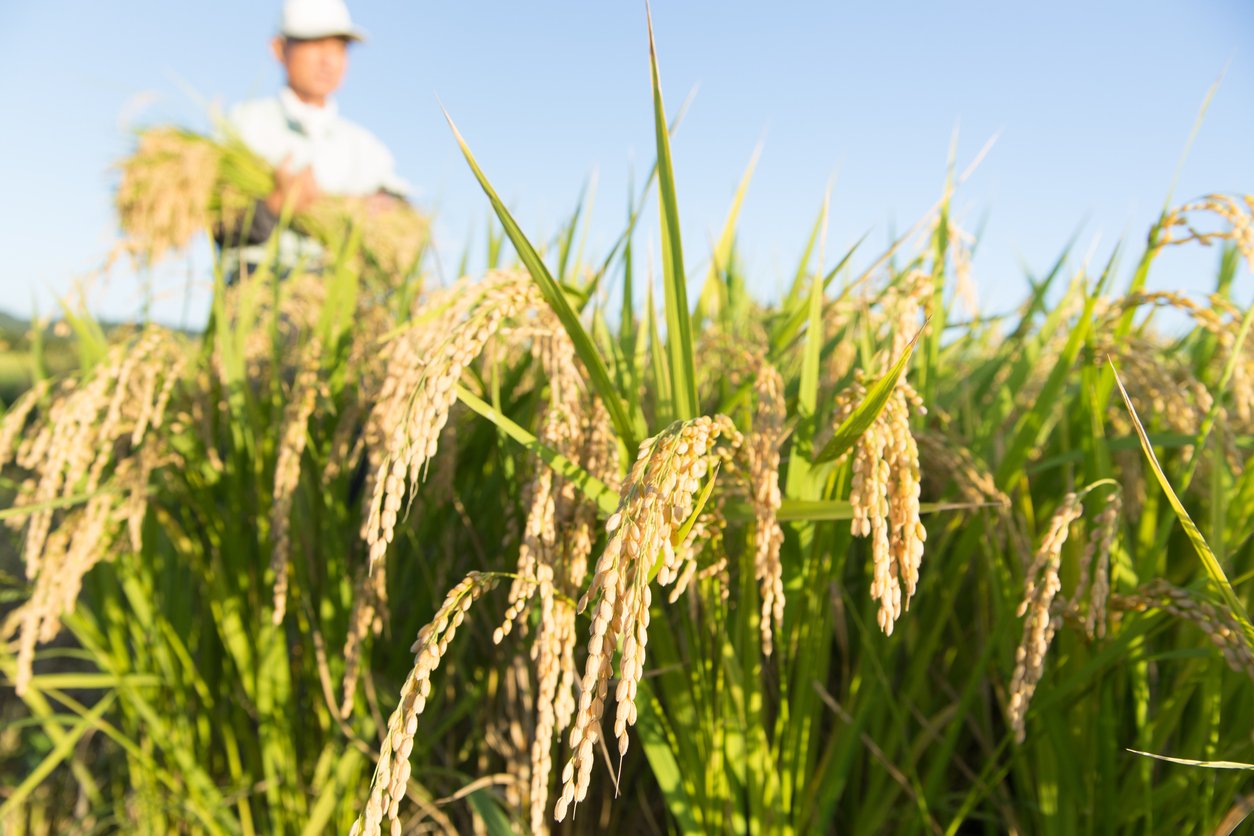Saturday, 31 January 2026

India’s Pusa DST-1 and DRR Dhan 100 (Kamala) undergo transparent multi-location trials, confirmed superior in target performance environments
The Indian Council of Agricultural Research (ICAR) has issued a detailed clarification addressing allegations of bias made by ‘The Coalition for a GM-Free India’ regarding the evaluation of two gene-edited rice lines—Pusa DST-1 and DRR Dhan 100 (Kamala)—in the All India Coordinated Research Project on Rice (AICRPR) trials during 2023 and 2024. ICAR underscores that these claims overlook decades-old scientific processes and misrepresent the rigorous, transparent and multi-location protocols followed under the national varietal evaluation system.
Under the AICRPR framework, which has been in operation since 1965, rice breeders nominate their newly developed lines for multi-location field evaluation across nearly 100 sites. Every nominated line is blind-coded at the national level before being dispatched to trial centres, ensuring anonymity and eliminating any scope for institutional or breeder bias. More than 1,200 breeding lines undergo this process annually, and the system has been instrumental in the development of over 1,750 rice varieties and hybrids released through the Central and State Varietal Release Committees. Today, more than 350 of these varieties are cultivated on roughly 47 million hectares across India—each one having been tested, validated and notified through the same AICRPR procedure.
As part of its globally recognised protocol, AICRPR divides trials by maturity duration, ecology and grain type, while also conducting special trials such as near-isogenic line (NIL) evaluations, Basmati trials, aromatic grain type trials and Japonica trials. Gene-edited lines and NILs are evaluated with their parent varieties across Target Performance Environments (TPEs)—regions where the parent varieties were originally released and are widely grown. These guidelines were updated and approved in 2017 to ensure that NILs and gene-edited lines demonstrate at least equivalent agro-morphological and quality performance, along with clear superiority for the improved trait, before they can be considered for varietal identification.
Following these procedures, the gene-edited lines DRR Dhan 100 (Kamala) and Pusa DST-1 underwent rigorous multi-location testing during the 2023 and 2024 seasons. Monitoring teams comprising domain experts visited trial sites to ensure trials were conducted correctly. Only data from locations where trials were properly executed, where stress levels were appropriate, and where results met statistical significance thresholds were considered—an established rule applied uniformly across all AICRP evaluations, not only gene-edited lines. ICAR notes that the Coalition’s approach of analysing results from all locations across India is scientifically unsound, especially given that rice varieties are never expected to perform uniformly across all ecologies. Performance must be judged in TPEs, which the Coalition failed to do.
Pusa DST-1, the gene-edited derivative of MTU1010, was evaluated across two seasons, Kharif 2023 and Kharif 2024, in normal as well as stress-prone saline and alkaline environments. In its TPE—Zone VII, covering the major rice-growing states of Andhra Pradesh, Telangana, Tamil Nadu, Karnataka and Puducherry—the line matched MTU1010 under normal conditions and displayed significant yield advantages under inland saline, coastal saline and alkaline conditions. Its cooking and grain quality were equivalent to MTU1010. Since MTU1010 is a mega-variety predominantly grown in South India, Pusa DST-1 is designed to replace it specifically in these regions, not across the entire country.
DRR Dhan 100 (Kamala), derived from Samba Mahsuri, underwent testing across Kharif 2023, Rabi 2023–24 and Kharif 2024. In Zone VII, its primary TPE, the line demonstrated consistent yield superiority, earlier maturity and equivalent grain quality. In Kharif 2023, it showed a 9.13 per cent yield advantage across seven TPE locations, along with 12 days earliness. The line also demonstrated strong performance in Zone III and Zone V, where Samba Mahsuri is grown to some extent, with yield advantages of 15–48 per cent in Kharif 2023. During the 2023–24 Rabi season, DRR Dhan 100 delivered a 21.95 per cent yield advantage and five days earliness. In Kharif 2024, it once again outperformed Samba Mahsuri in TPE locations with over 10 per cent higher yield and 5.5 days earliness. The Coalition failed to account for Rabi performance entirely, despite its clear significance in varietal evaluation.
ICAR emphasises that the Coalition selectively highlighted locations where the gene-edited lines did not show superiority, while ignoring multiple TPE-level results demonstrating their consistent advantages. Such selective interpretation, ICAR asserts, does not align with scientific rigour and misleads the public. All AICRPR data is already available in the public domain, representing one of the most transparent crop-evaluation systems globally.
The underlying objection of the Coalition, ICAR notes, appears to be opposition to gene-editing technology itself rather than concerns about the trial process. Indian scientists have not only developed the two gene-edited lines but also subjected them to some of the world’s most stringent multi-location testing regimes. More than 250 officials, policymakers, journalists, private-sector representatives and over 5,000 farmers have visited the trial fields at ICAR-IARI and ICAR-IIRR in the past three years, independently observing the performance of Pusa DST-1 and DRR Dhan 100 (Kamala).
ICAR reiterates that the decision on these varieties should ultimately rest with India’s farmers, who have seen the lines perform in real field conditions. Ensuring rapid access to these improved seeds is essential, and preventing their release would deny farmers the ability to evaluate and adopt innovations that could help them manage salinity, alkalinity and other emerging challenges. ICAR encourages all stakeholders—researchers, farmers and civil society representatives—to visit the research fields and assess the gene-edited lines directly. The Council remains committed to scientific transparency, rigorous evaluation and the advancement of technologies that enhance India’s rice productivity and climate resilience.